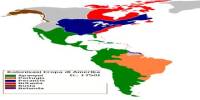Transnational Citizenship is a puzzling concept if we think about citizenship as a relation between an individual, a state, and the other citizens of that state. It redefines traditional notions of citizenship and replaces an individual’s singular national loyalties with the ability to belong to multiple nation-states, as made visible in the political, cultural, social, and economic realms. Dual citizenship/nationality– marked global upward trend in claims through naturalization, marriage, and birth, widespread government policy shifts. Unlike national citizenship, where individuals interact in such capacities with one sovereign state, transnational citizenship transcends pre-established territorial boundaries in order to create a modern meaning of “belonging” in an increasingly globalized society. However, such a view of citizenship is no longer adequate in a world where states have become interdependent and where large numbers of individuals move across their borders.
Transnational citizenship is based on the idea that a new global framework consistent with subgroups of national identities will eventually replace membership to one sole nation-state.
Transnationalism, as defined by Basch et al (1994) is “a process by which migrants, through their daily life activities create social fields that cross national boundaries”. When applied to transnational citizenship, an individual would have the opportunity to be civically engaged in multiple societies. The conception of citizenship education focused on teaching traditional activities associated with political life, such as following political news and voting. A Dominican politician who lives in Santo Domingo yet canvasses in a highly dense Dominican American population in Boston, Massachusetts for external votes is an example of transnational citizens functioning politically between two states.
Transnational citizenship refers broadly to the enjoyment of rights, political participation, and/or membership in a community that extends beyond the borders of a particular nation-state. In terms of the categories of social and individual forms of belonging, transnational citizens are marked by multiple identities and allegiances, and often travel between two or more countries, all in which they have created sizeable networks of differing functions. Similar to global or cosmopolitan citizenship, it is composed of cross-national and multi-layered memberships to certain societies. Regional integration, mass migration, and the development of transnational organizations are just some of the factors challenging the traditional definitions of citizenship.
Transnational citizenship is based on the idea that a new global framework consistent with subgroups of national identities will eventually replace membership to one sole nation-state. Certainly, the prospects of the new economy must be viewed with caution, but state and cultural boundaries already play hardly any role anymore in its leading branches – telecommunications, health care, and biotechnology. In a hyper-realized version of transnational citizenship, “states become intermediaries between the local and the global.” In Transnational Citizenship theoretical discussion of the definition and extension of citizenship rights is combined with comparative policy analysis on rules of naturalization and expatriation in liberal democratic states.
















